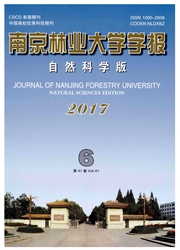

 中文摘要:
中文摘要:
森林生态系统是陆地生态系统的主体,其对减少大气中的CO2浓度从而减缓全球变暖有着决定性的作用。为了探究气候变化对森林生态系统的影响以及森林生态系统的反馈机制,发展合理的森林经营策略以应对气候变化,笔者综述了国内外有关气候变化对森林生态系统影响的相关研究方法与成果,重点讨论了气候变化对森林结构、组成和分布、森林生产力、森林碳库、森林生态系统生物多样性、生态系统生态服务功能等方面的影响,论述了森林生态系统对气候变化的反馈机制,并指出了现有研究的不足之处,提出了适应或者减缓气候变化对森林生态系统影响的森林经营策略,主要包括:1坚决贯彻实施退耕还林政策;2加强保护天然林;3制定科学的森林经营对策;4加速我国碳汇林业的发展。
 英文摘要:
英文摘要:
Forest ecosystem is the major component of the terrestrial ecosystems, which plays a decisive role in reducing CO2 concentration in the atmosphere to consequently mitigate global wanning. The principal objectives of the current work were to investigate the impacts of climate change on forest ecosystem and the feedback mechanisms of forest ecosystems on climate change, and to develop proper forest management strategies in response to climate change. The methods and principal achievements of exploring the impacts of climate change upon forest ecosystems at home and aboard in recent years were reviewed in this analysis, with an emphasis on the influences of climate change on forest phenology, forest structure, composition and distribution, forest productivity, forest carbon stocks, forest biodiversity, forest ecosystem service, etc., and the feedbacks of forest ecosystem on climate change were also discussed. Clarification of the limitations or deficiencies of the existing investigations and the outlook of future promising research fields were presented. To adapt to future climate scenarios or to mitigate the impacts of climate change on forest ecosystems, targeted forest management strategies and practices are recommended for sustainable forest management. The adaptive management measure are: (1) to resolutely implement the policy of returning farmland to forest ; (2) to strengthen the protection of natural forest ; (3) to formulate scientific forest management countermeasure; (A) to accelerate the development of Chinese carbon sequestration forestry.
 同期刊论文项目
同期刊论文项目
 同项目期刊论文
同项目期刊论文
 期刊信息
期刊信息
